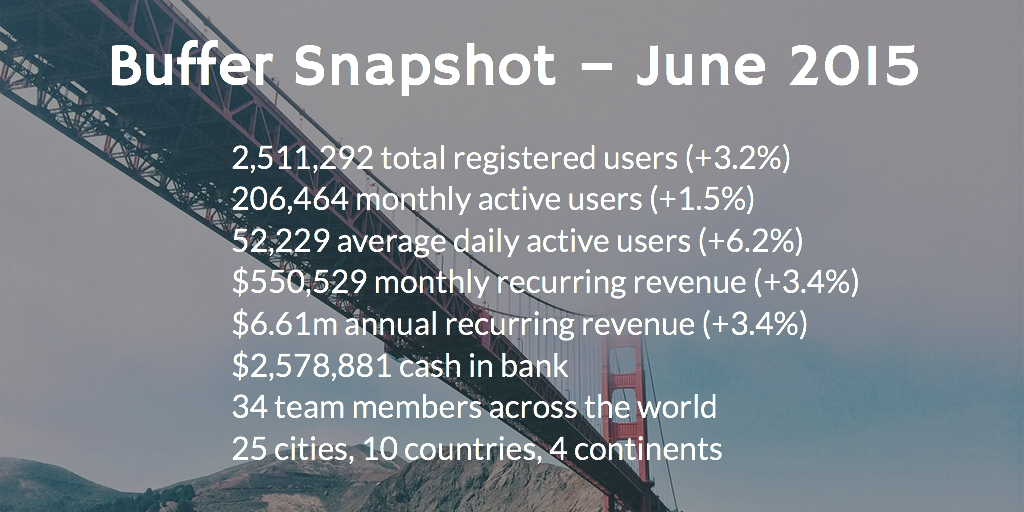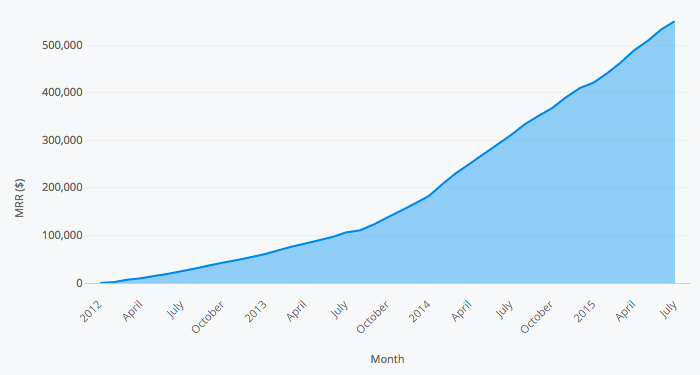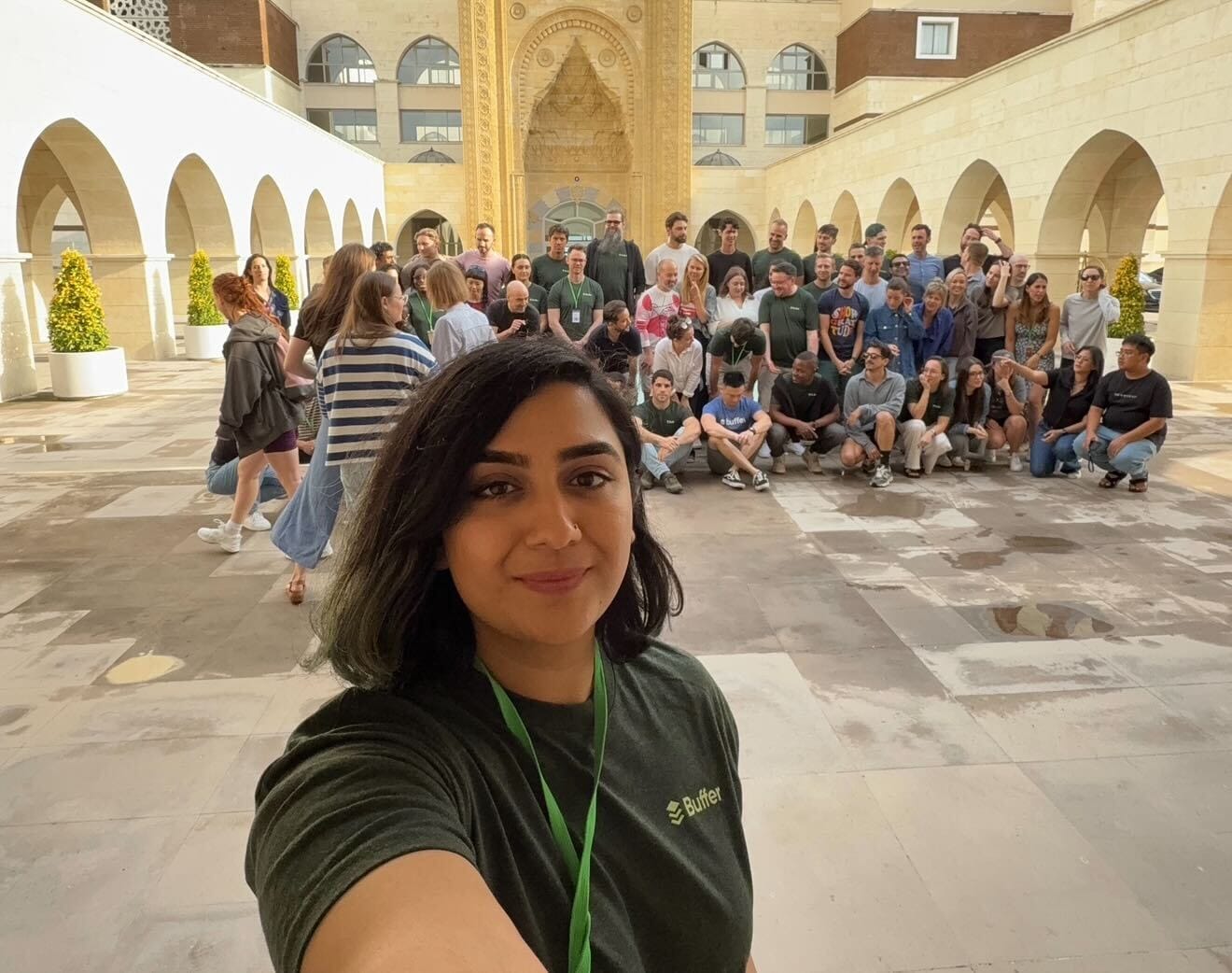Buffer in June 2015: Fastest-Ever Team Growth, $6.6M ARR

Founder CEO @ Buffer
We’re officially halfway through the year. Very excited to share the latest update for Buffer:
Key metrics

2,511,292 total registered users (+3.2%)
206,464 monthly active users (+1.5%)
52,229 average daily active users (+6.2%)
$550,529 monthly recurring revenue (+3.4%)
$6.61m annual recurring revenue (+3.4%)
$2,578,881 cash in bank
34 team members across the world
25 cities, 10 countries, 4 continents
Here’s a graph of our MRR growth over the last 3.5 years:

The change in trajectory around October 2013 is most likely attributable to us launching Buffer for Business.
This is exciting as recently we’ve started discussions within the team of doubling down further on Buffer for Business and creating a dedicated product/engineering team to serve those customer problems even better.
Asks: Learning more about product structure
I’m trying to learn how companies structure product, design and front-end development (CSS). These seem like overlapping areas, and could easily be 3 people, or could be one person who has ability in all areas. With 1 person rather than 3, it feels possible to move much faster.
I’m keen to learn how other companies balance expertise and specialization vs speed. If you have any thoughts here or know someone who might have thoughts (maybe a founder, CPO or product people), I’d love to hear from you! Thanks.
Team: Fastest-ever growth and hiring push
- 34 fully on board team members.
- 2 new people finished bootcamp and fully joined the team: Kat (Engineer) and Danny (Happiness Hero).
- 6 people have accepted offers to join the team in the coming weeks/months (3 Product Creators, 2 Engineers, 1 Community Champion). This will make us 40 people.
- We’re hiring for 14 (!) different positions
Product: Pinterest improvements
- We soft-launched improvements to our Pinterest scheduling capabilities, including letting you pick an image from the page.

- We’re very close to rolling out the ability to schedule new ‘Retweet with Comment’ Tweets using Buffer.
Key changes to self-management at Buffer
Building on our self-management learnings, we have started to make some key changes to how we view self-management and work together.
We’re moving away from self-management being synonymous with ’no structure’. We’ve realized that hierarchy and structure are very different things, and structure is key to working efficiently. Some the the changes that have resulted include:
- A bias towards small teams with clear roles. Small teams can feel more ownership and move fast.
- Embracing the idea of higher level work as a separate task carried out by people, rather than spread across everyone.
- Starting up mentorship again, through regular 1:1s. 1:1s are a great way to maintain help and guidance, without managers.
To tie all this together, we have started to develop our own internal tool to help us organize ourselves and create visibility to the roles people have. Here are a few screenshots (still very much a work in progress):


Over to you
Thanks for being part of our journey. If you have any questions or thoughts, I’d be keen to hear them in the comments!
Try Buffer for free
180,000+ creators, small businesses, and marketers use Buffer to grow their audiences every month.
Related Articles

What it was like to join a fully remote team like Buffer, and how going on the company retreat so early on helped shape my journey in ways I hadn’t imagined.

If you’ve followed Buffer for a while, then you know we have a few uncommon approaches to teammate benefits and compensation. The example I’ll dig into today is our “Dependent Grant,” which we launched in 2016. Our Dependent Grant is separate benefit, outside of salary, that we grant teammates who are taking care of and supporting family members. It’s an extra $3,000 USD per year per child, up to four dependents total. This has been one of our most unusual (and at times controversial) benefits

It can feel incredibly challenging to hire, and hire well. For one thing, hiring is usually a significant time investment for our small team — we once had 1,500 applications in just over a week for a content role (!!) — but beyond that, we are so intentional about the ways that we collaborate. Buffer is a fully remote, global, and culturally diverse company operating with a four-day work week. Finding someone who will thrive in our work environment, and is also highly skilled in the areas we’r